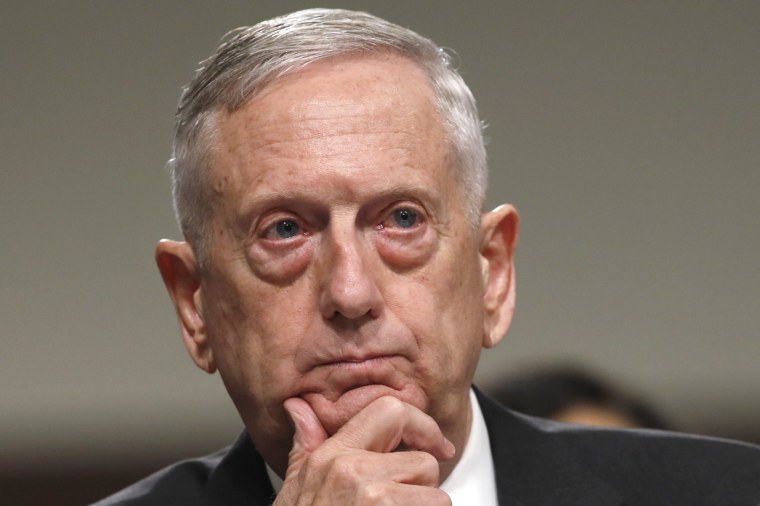Defense Secretary James Mattis on Friday announced a six-month delay before transgender individuals are allowed to enlist in the armed services, citing the need for further reviews and any impact on "readiness and lethality."
Mattis announced the delay in a memo issued Friday. Former Defense Secretary Ash Carter had set a July 1, 2017 date for the military to begin enlisting transgender service members.
Mattis said he made the decision to delay the implementation after consulting with service chiefs and secretaries. "We will use this additional time to evaluate more carefully the impact of such accessions on readiness and lethality," Mattis said in the memo.

Accession is a term referring to recruits signing a contract and shipping to entry training. While currently enlisted transgender troops can continue to serve, recent graduates and new recruits have to wait to serve their country openly. The delay sets the new deadline as Jan. 1, 2018.
The military LGBT advocacy group OutServe-SLDN said the delay was unfortunate and unnecessary.
"Transgender service members have been serving, openly and authentically, since October 2016 with no impact on readiness," the group said in a statement Friday. "It is time to full lift the ban on transgender service by implementing this final piece by implementing the accessions policy."
"This delay is a disservice to the transgender community and to our military as a whole," the group said
In announcing that transgender service members would be able to serve openly, Carter in June of 2016 called the change "the right thing to do for our people and for the force."
Mattis ordered the results of the review by Dec. 1. He said in the memo that "this action in no way presupposes the outcome of the review" and does not change policies currently in effect. "I am confident we will continue to treat all Service members with dignity and respect," the memo reads.
According to a RAND research study released in 2016, there were anywhere between 1,320 and 6,630 active transgender service members before the ban was lifted — with another approximately 1,500 on reserve.
The policy change on transgender individuals was announced around five-and-half years after a 2010 bill passed by Congress to repeal the "don't ask don't tell" requirement was signed into law. That policy barred gay and lesbian service members from serving openly, allowing them to serve only if they kept quiet about their sexual orientation.
